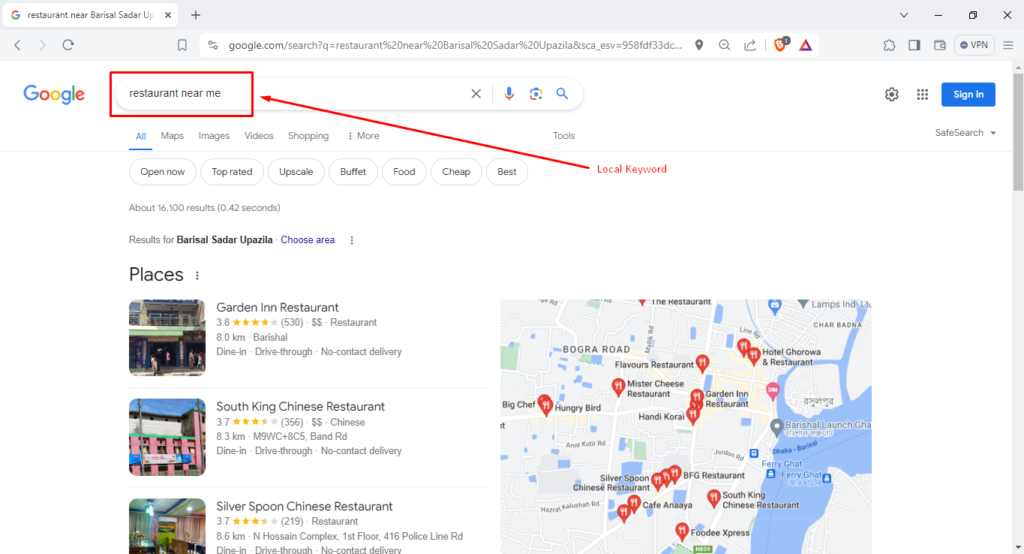Welcome to our guide on How to Use Local Keywords in Content: Boost Your SEO Success. In the world of search engine optimization (SEO), using local keywords in your content can significantly boost your online visibility. Welcome to our guide on How to Use Local Keywords in Content: Boost Your SEO Success. Local keywords are search terms that include specific locations or regions, and they are crucial for businesses targeting local markets. When used effectively, local keywords can help your business attract relevant traffic and potential customers from your area. To optimize your content for local searches, consider the following strategies:
1. Research Local Keywords
Before you start incorporating local keywords into your content, it’s essential to conduct thorough keyword research. Identify the specific phrases and terms that people in your locality are using to search for products or services related to your business. Use keyword research tools to discover popular local search terms and their search volumes. Focus on long-tail keywords that include your city, town, or neighbourhood to target potential customers in your area.
2. Integrate Local Keywords Naturally
Once you’ve identified relevant local keywords, seamlessly integrate them into your content. Avoid keyword stuffing, which can harm your website’s rankings and detract from the user experience. Instead, aim to incorporate local keywords naturally within your headings, subheadings, and body text. Keep your content’s readability in mind and prioritize providing valuable information to your audience while using local keywords judiciously.
3. Optimize Meta Tags and Descriptions
Optimizing your meta tags and descriptions with local keywords helps search engines understand the relevance of your content to local search queries. Include local terms in your title tags, meta descriptions, and image alt text to enhance your content’s visibility in local search results. Crafting compelling meta tags and descriptions that incorporate local keywords can improve click-through rates and drive more local traffic to your website.
4. Create Location-Specific Landing Pages
If your business has multiple locations or serves various areas, consider creating location-specific landing pages. Tailor the content of each landing page to address the unique needs and interests of local customers. Incorporate local keywords in the page’s content, headings, and metadata. By doing so, you can enhance your website’s relevance for local searches and provide a personalized experience for visitors based on their location.
5. Leverage Local Reviews and Testimonials
Local reviews and testimonials are powerful social proofs that can influence potential customers and improve your local search rankings. Encourage satisfied customers to leave reviews mentioning their location and the specific services or products they received. By incorporating local keywords into these genuine customer testimonials, you can reinforce the local relevance of your business and improve your chances of appearing in local search results.

6. Claim and Optimize Your Google My Business Listing
Google My Business is an essential tool for local SEO, and optimizing your listing with relevant local keywords is crucial. Ensure that your business’s name, address, and phone number (NAP) information is consistent across all online platforms. Incorporate local keywords into your Google My Business profile’s description and select relevant categories and attributes that align with local search intent.
7. Utilize Local Structured Data Markup
Implementing structured data markup on your website using schema.org can provide search engines with valuable contextual information about your business, including its location, contact details, business hours, and customer reviews. By incorporating local business schema markup, you can enhance your chances of being featured in rich snippets and other prominent search result features for local queries.
8. Engage in Local Link Building
Building high-quality backlinks from local and industry-relevant websites can strengthen your website’s authority and local relevance. Seek opportunities to collaborate with local businesses, organizations, and event organizers to acquire backlinks from reputable sources within your community. Additionally, creating locally focused content and participating in local sponsorships or community initiatives can help attract valuable backlinks with local context.
9. Monitor Local Keyword Performance
Regularly monitor the performance of your local keywords using web analytics tools to gauge the effectiveness of your local SEO efforts. Track changes in keyword rankings, organic traffic from local searches, and user engagement metrics to assess the impact of your local keyword optimization strategies. Use the insights gathered from your performance data to refine your local SEO approach and adapt to evolving search trends.
10. Stay Updated with Local SEO Trends
Local SEO is dynamic, and staying abreast of the latest trends and algorithm updates is essential for maintaining a competitive edge. Follow industry publications, attend local SEO workshops and webinars, and engage with local SEO communities to stay informed about best practices and emerging strategies for optimizing your content with local keywords. Adapting to changes in local search algorithms and user behaviour can positively influence your local SEO performance.
By implementing these strategies and consistently optimizing your content with local keywords, you can enhance your business’s visibility in local search results, attract relevant local traffic, and ultimately drive more conversions and revenue from your target geographical areas.
Frequently Asked Questions on How To Use Local Keywords In Content: Boost Your SEO Success
How Can I Use Local Keywords In My Content?
To use local keywords effectively, include them naturally in titles, headers, meta descriptions, and throughout your content. Ensure relevance and value to local users.
Why Are Local Keywords Important For Content?
Local keywords help target specific geographical regions, increasing visibility in local search results and attracting relevant local website visitors.
What Are Some Best Practices For Using Local Keywords?
Research local keyword variations, analyze competitor keyword strategies, use location-specific terms, and incorporate long-tail keywords to improve local search rankings.
Can I Use Local Keywords In My Website’s URLs?
Absolutely! Implementing local keywords in your URL structure can help search engines understand your website’s relevance to specific geographic areas.

